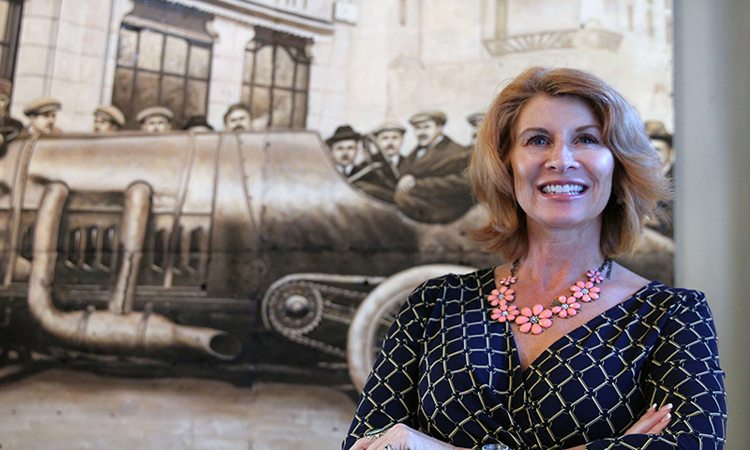Competitors working together? That’s not a typical business practice, but representatives from five Scottsdale furniture consignment shops said their collaboration has helped boost the local industry.
Darlene Richert, president and founder of Avery Lane, spearheaded the effort to brand the high-end resale shops located within a five-mile radius of each other and market them as the Scottsdale Consignment Corridor.
“I approached the other stores and said, ‘Hey, let’s create this as a destination’ because for somebody to drive all the way up from Chandler or Mesa or from the west side to come see one store, it doesn’t make sense,” Richert said. “If they don’t know about the other stores they might go, ‘Well, maybe we won’t go see Avery Lane,’ but if they know they can come here and go to three other stores within a five-mile radius, it makes sense for them.”
Richert and the other shop owners launched what’s called a shared marketing campaign to help cut costs and support each other’s businesses. Shared marketing, also known as collaborative marketing, is “the next big thing” in advertising, according to Forbes.
“None of us, one on one, can buy a full page ad in say Phoenix Home & Garden (magazine), but with three or four of us together, we can do it,” Richert said.
The group created a handout map with each of the stores’ locations and hours of operation. The corridor includes Avery Lane, Airpark Consignment, Stevans Consignment, Lost & Found Resale Interiors and Switch Consignment. Each store distributes the maps to customers.
“The thing we hear on a regular basis is they’ll say, ‘Oh, Stevans sent us to you’ or ‘Lost & Found sent us,’” Richert said. “It creates this feeling with our clients where they think, ‘That’s so cool that you don’t have any equity in (the other stores), and you guys send your clients back and forth.’ They just really appreciate that we have that kind of customer service.”
Peter and Candy LaPlante recently bought a winter home in Scottsdale and found Avery Lane thanks to the corridor map.
“We asked for a map at the last place we were at, and now we’re here,” Candy LaPlante said.
The duo, originally from Spokane, Washington, said they felt resale furniture was the right fit for them.
“We bought a furnished house, and we like maybe half of it, or maybe a little more, and so we’re looking for a few pieces. We’re not really into new stuff,” Peter LaPlante said. “We almost always look for stuff that’s been, what we call, ‘drug behind the pickup.’”
“We don’t have consignment shops like you guys have. These are amazing,” Candy LaPlante said.
Amanda Baldwin, owner of Stevans Consignment, said she believes the collaboration between shops has helped her business.
“We feel like competition is a good thing,” Baldwin said. “We all have our own different kind of styles, and all the shop owners are aware of everyone’s styles, and we just refer people to each other.”
Beyond marketing, the stores also coordinate when it comes to practical needs such as expediting deliveries from multiple stores.
“If somebody buys stuff at Stevans or Lost & Found, I say, ‘Great! No problem! I will do all of the routing of the delivery,’ and they’re just kind of shocked,’” Richert said. “They can get just about their whole house furnished in a weekend.”
The used merchandise store industry in the U.S. includes about 20,000 stores with a combined annual revenue of about $17 billion, according to an industry analysis by Dun & Bradstreet First Research. However, resale wasn’t always a prosperous industry, Richert said.
“Consignment furniture used to have this, ‘Eh, I don’t want to buy resale’ (mentality), and I think Avery Lane is the exception,” Richert said. “A lot of people will be walking around my store for 15 minutes before they realize it’s resale.”
Stevans and Avery Lane expect to open second locations within a year. Switch Consignment and Lost & Found Resale Interiors each have two locations.
“We’ve had some of our competitors who have shut down, quite a few, and part of it is the recession and everything, but part of it is not having good business sense,” Richert said. “This is a two-throttle business. You’re constantly looking for consignors to bring their furniture in and obviously you’re working to help sell those, so … you’ve got to have your caffeine in the morning.”




